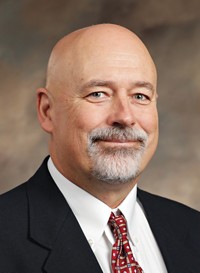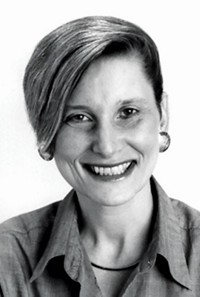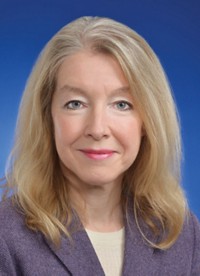Advertisement
Grab your lab coat. Let's get started
Welcome!
Welcome!
Create an account below to get 6 C&EN articles per month, receive newsletters and more - all free.
It seems this is your first time logging in online. Please enter the following information to continue.
As an ACS member you automatically get access to this site. All we need is few more details to create your reading experience.
Not you? Sign in with a different account.
Not you? Sign in with a different account.
ERROR 1
ERROR 1
ERROR 2
ERROR 2
ERROR 2
ERROR 2
ERROR 2
Password and Confirm password must match.
If you have an ACS member number, please enter it here so we can link this account to your membership. (optional)
ERROR 2
ACS values your privacy. By submitting your information, you are gaining access to C&EN and subscribing to our weekly newsletter. We use the information you provide to make your reading experience better, and we will never sell your data to third party members.
Policy
For President-Elect: Peter K. Dorhout
September 7, 2014
| A version of this story appeared in
Volume 92, Issue 36
Kansas State University Section. Kansas State University, Manhattan, Kan.
Academic record: University of Illinois, B.S., 1985; University of Wisconsin, Ph.D., 1989
Honors: ACS Fellow, 2013; Oliver P. Pennock Service Award, Colorado State University, 2011; Distinguished Service Award, Colorado School of Public Health, 2008; Distinguished Service Award, Office of International Activities, Colorado State University, 2008; ACS Colorado Local Section Service Award, 2004; Undergraduate Research Mentor Award, Colorado State University, 2002; Alfred P. Sloan Fellow, 1997; Camille Dreyfus Teacher-Scholar, 1997; ACS Divison of Inorganic Chemistry, Exxon Faculty Fellow Award in Solid-State Chemistry, 1996; National Science Foundation Career Award, 1996; Research Corporation Cottrell Scholar, 1994; Sigma Xi, 1991
Professional positions (for past 10 years): Kansas State University, dean of arts and sciences, 2012– ; Colorado State University, Pueblo, interim provost, 2011; Colorado State University, vice provost for graduate affairs and assistant vice president for research, 2004–11; Office of International Programs, interim executive director, 2005; College of Natural Sciences, associate dean, 2002–04; professor of chemistry, 2002–
Service in ACS national offices: Committee on Budget & Finance, associate, 2014; Board of Directors, District V, director, 2010–12; councilor ex officio, 2010–12; Committee on Professional & Member Relations, chair, 2011–12; Executive Committee, 2011–12; Sustainability Stakeholders Steering Group (S3G), member, 2011; International Center Working Group, chair, 2010; Graduate Education Advisory Board, chair, 2009–11; International Activities Committee, chair, 2009; Board Oversight Group on Leadership Development, 2005–09; Committee on Committees, 2002–08, chair, 2008, secretary, 2005–06; Joint Board-ConC AET, chair, 2008; Presidential Task Force on Stopgap Funding, 2001–02; Committee on Divisional Activities, 2001, committee associate, 2000; Younger Chemists Committee, 1996–98, committee associate, 1995, consultant, 2013–14
Service in ACS offices: Colorado Section: councilor, 2001–09; Nominating Committee, 2000, 2008; newsletter editor, 1999–2004; chair and program chair, 1999; chair-elect, 1998. Division of Inorganic Chemistry: councilor, 1999–2001
Member: Member of ACS since 1985. American Association for the Advancement of Science; Society for Advancement of Hispanics/Chicanos & Native Americans in Science, life member. ACS Divisions: Industrial & Engineering Chemisty, Inorganic Chemistry, Nuclear Chemistry & Technology
Watch For Your Ballot
All voting members of ACS will receive ballots enabling them to vote for president-elect. Only members with mailing addresses in Districts III and VI will receive ballots to vote for director from those districts. Only voting councilors will receive ballots for the director-at-large elections.
All ballots will be mailed on Oct. 3. The deadline for voting or return of marked ballots, which may be done online or by paper ballot, respectively, is close of business on Nov. 14.
Related activities: ACS Leadership Development System, cofacilitator, 2013–14; Research Corporation Board of Directors, 2003– , advisory committee, 1998–2004; ACS Webinars, facilitator, 2013; Defense Threat Reduction Agency, consultant, 2013; Army ROTC Influencers Course, 2012; Colorado State University (CSU) ROTC Advisory Board, 2008–11; CSU President’s Strategic Planning Group, 2004–09; NSF Workshop on Solid-State & Materials Chemistry, organizer, 2004–08; Los Alamos National Laboratory, consultant, 1988–2006; International Science & Technology Center, Russian Federal Nuclear Center, U.S. project adviser/director, 1998–2006; 219th ACS National Meeting Symposium on New Synthetic Methods in Solid-State Chemistry, symposium coorganizer, 2000; author of more than 110 peer-reviewed manuscripts and book chapters
DORHOUT’S STATEMENT
The 140th anniversary year of ACS doesn’t seem so far off. What a journey it has been since 35 chemists met in New York City in 1876 to establish the society—we are now more than 161,000 strong! What an honor to be asked to be a candidate for president. As a candidate, there are three things I believe:
1. I believe that everyone has a fundamental right to access the benefits of technology and education.
2. I believe that the solution to our economic woes and the employment outlook resides with us as ACS members.
3. I believe in improving people’s lives through the transforming power of chemistry.
Access to Technology and Education. Whether overseas, where access to clean water and safe and ample food remains a daily struggle, or here in the U.S., where the same can be true, technology is making a difference, and access to technology improves the human condition. Advances in chemistry lead to improved technologies and improved lives. These advances come from undergraduate and graduate students working in college and university laboratories, from chemists in large and small multinational companies with footprints around the globe, and from the entrepreneurial chemist with an emerging start-up in his or her garage. Most important, all of these people are or can be members of ACS.
Many of you were the first member of your family to attend college. Access to education continues to be a struggle—a diverse and talented middle class, whose median income hasn’t changed since 1989, struggles to send its kids to college; more first-generation students are attending college than ever before, but their success rates are dropping, and student loan debt appears to be the next trillion-dollar bubble.
ACS makes a difference in access through its ACS Scholars Program—supporting nearly 3,000 students in its 20-year history—but we can and should do more to promote access to higher education, access to technology, and access to ACS. I will lead a major fund-raising campaign to build an endowment that will provide funding in perpetuity. What a difference we can make together! What an important value-added investment that will be!
Employment Solutions. I believe that the solution to our economic woes and changing the employment outlook resides with us as ACS members. To paraphrase the comic strip character Pogo: “I have seen the solution, and it is us.” Our talented members are agents for change—no need to add new programs to ACS. Let’s rally around the things we do already to promote jobs: local section and division activities, career services, international and entrepreneurship centers, and leadership development, to name a few. I will build on the partnership with Corporation Associates and engage the Committee on Professional Training, the Industrial & Engineering Chemistry Division, the Graduate Education Advisory Board, the Leadership Institute, and the Committee on Technician Affairs in discourse and action. We can leverage what we have already to make a difference and advocate for an environment that supports jobs in the chemical sciences.
Improving Lives. Global challenges require global thinkers and global solutions. Technology, education, and employment opportunities transform our professions and society. We chemical professionals—emerging, established, or renowned—make a difference. ACS should continue to invest its resources in its people who transform the world. The members need to see that the president communicates in a transparent manner about those investments in people and represents those ideals to the board of directors—I will be that president.
As members, we should expect beneficial value in what ACS provides. You should ask, “Why am I a member of ACS? Does ACS invest in my professional development? Do ACS meetings provide me with a venue to learn, to teach, and to advance professionally?” Read my responses on my website, www.PeterDorhoutACS.com, and follow me on Twitter @PeterDorhoutACS.
Many of you have known me for years as a collaborative leader in local section, division, and committee activities. You and I are part of 186 local sections that are the boots on the ground in local networks. Our 32 technical divisions are unique vehicles for developing programming that taps our interests in fundamental science and explores solutions to global challenges. Working together, we will make a difference.
If elected, I will spend my time listening to you across the country at local, regional, and national meetings and through webinars by hosting town-hall-style meetings—I want to listen and act for you! I will be an active communicator with you and advocate for you. After years of ACS service and leadership, I am asking you to help me pay it forward; I’m asking you to believe with me.
Candidates will not be notified of comments left on this webpage. To contact this candidate directly, e-mail dorhout@ksu.edu.






Join the conversation
Contact the reporter
Submit a Letter to the Editor for publication
Engage with us on Twitter